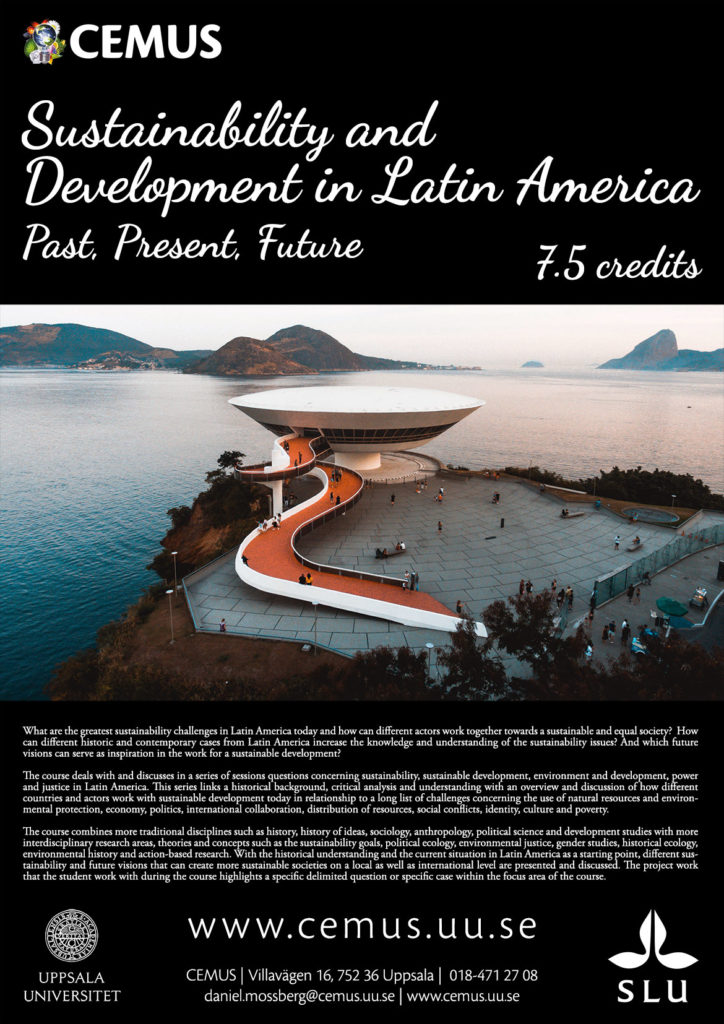
About the course
What are the greatest sustainability challenges in Latin America today and how can different actors work together towards a sustainable and equal society? How can different historic and contemporary cases from Latin America increase the knowledge and understanding of the sustainability issues? And which future visions can serve as inspiration in the work for a sustainable development?
The course deals with and discusses in a series of sessions questions concerning sustainability, sustainable development, environment and development, power and justice in Latin America. This series links a historical background, critical analysis and understanding with an overview and discussion of how different countries and actors work with sustainable development today. This is done in relation to challenges concerning the use of natural resources and environmental protection, economy, politics, international collaboration, distribution of resources, social conflicts, identity, culture and poverty.
The course combines more traditional disciplines such as history, history of ideas, sociology, anthropology, political science and development studies. The course also includes interdisciplinary research areas, theories and concepts such as the sustainability goals, political ecology, environmental justice, gender studies, historical ecology, environmental history and action-based research. With the historical understanding and the current situation in Latin America as a starting point, different sustainability and future visions that can create more sustainable societies on a local as well as international level are presented and discussed. The project work that you work with during the course highlights a specific delimited question or specific case within the focus area of the course.
Syllabus: link to syllabus
Archive
